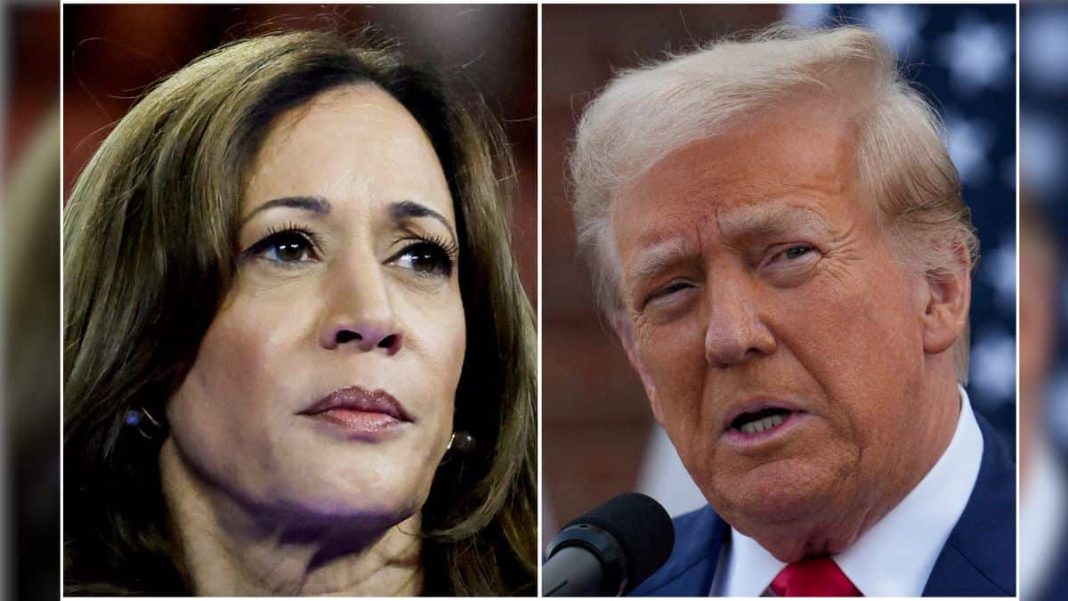Crypto Set to Gain Ground in Congress Regardless of Presidential Outcome
As the 2024 U.S. presidential election approaches, the cryptocurrency sector is gearing up for a significant political influence boost in Congress, with a staggering $160 million in super PAC spending aimed at supporting pro-crypto lawmakers. This unprecedented financial backing, detailed in a recent report by Politico, signals a potential shift toward a more crypto-friendly legislative environment, regardless of whether Donald Trump or Kamala Harris takes the presidency.
A Bipartisan Push for Crypto
The crypto industry is making a concerted effort to ensure that its interests are represented across both the House and Senate. With candidates from both major parties receiving support, the upcoming elections could usher in the most crypto-friendly Congress to date. This bipartisan approach highlights a growing recognition of the need for favorable regulatory frameworks that can foster mainstream adoption of digital assets.
In the House, up to 13 pro-crypto candidates are poised to take new seats, thanks to strategic spending from industry-backed super PACs. These candidates range from progressive Democrats advocating for financial inclusion to Republicans who view digital assets as essential tools for economic freedom. If successful, this new wave of representatives could help dismantle long-standing regulatory barriers that have hindered the industry’s growth.
Key House Targets
Super PACs have earmarked approximately $31.5 million for House Democrats, focusing on candidates like Shomari Figures of Alabama, who has received $2.6 million in backing. Figures, once seen as an unlikely ally due to his previous work with the Biden Justice Department, has shifted his stance to advocate for the benefits of digital assets. Other notable targets include Rep. Don Davis of North Carolina and Yassamin Ansari of Arizona, both of whom are seen as more progressive candidates willing to align with the crypto industry’s goals.
On the Republican side, $16.7 million has been allocated to support incumbents in swing districts, including Reps. Michelle Steel of California and William Timmons of South Carolina. The GOP’s increasing embrace of crypto, influenced by figures like former President Trump, suggests a potential shift in the party’s stance toward digital assets.
Senate Spending and Strategic Gambles
In the Senate, crypto funding reaches an impressive $49.6 million, with significant investments in candidates like Bernie Moreno of Ohio, who has received $40.1 million. Moreno’s campaign against Senate Banking Chair Sherrod Brown, a vocal critic of crypto, is seen as a crucial battleground. A Republican win in Ohio could not only bolster pro-crypto momentum but also neutralize a significant regulatory obstacle.
Other Senate races in Michigan, Arizona, and Pennsylvania are also seeing candidates who align with crypto-friendly policies, further strengthening the potential for a GOP-led, pro-crypto Senate.
The Future of Crypto Legislation
Should Republicans gain control of the Senate, the implications for the crypto industry could be monumental. A shift toward more favorable legislation could create an unprecedented regulatory environment that supports cryptocurrency growth, driven by the industry’s substantial political investments.
However, the road ahead is not without challenges. While the FIT21 bill has garnered bipartisan support in the House, its future in the Senate remains uncertain. Prominent Democrats like Nancy Pelosi have shown quiet support, but others, particularly Senate Democrats like Sherrod Brown, remain skeptical of crypto’s reputation, potentially stalling progress.
Navigating the Lobbying Landscape
As the crypto industry ramps up its lobbying efforts, it faces the challenge of mobilizing grassroots support. Initiatives like Coinbase’s Stand With Crypto campaign aim to rally public backing, but many crypto advocates are hesitant to engage in traditional political campaigns, preferring the decentralized ethos of the industry.
Criticism has also emerged regarding some aggressive lobbying tactics, such as attack ads against politicians like California Representative Katie Porter, who has maintained a relatively neutral stance on crypto. Such strategies have raised questions about the industry’s priorities and whether they genuinely aim to advance pro-crypto legislation.
Looking Ahead
As the 2024 presidential election looms, the crypto industry’s hopes are not tied to any single candidate. Analysts remain optimistic about a bullish post-election environment for assets like Bitcoin, anticipating increased liquidity and renewed interest from institutional investors. Whether Trump or Harris emerges victorious, the focus for the crypto sector will remain on long-term market trends rather than short-term political victories.
In summary, the crypto sector is poised for a significant political influence boost in Congress, with substantial financial backing aimed at supporting pro-crypto candidates across party lines. As the election approaches, the industry’s future hangs in the balance, with the potential for a historic shift in regulatory attitudes toward digital assets.



